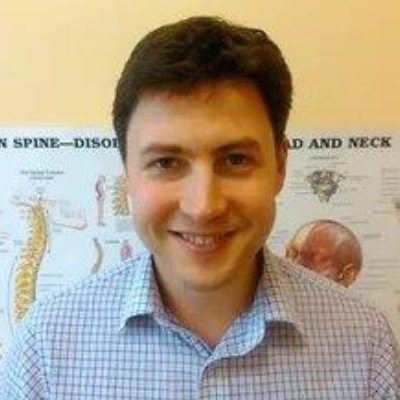“Would recommend highly, first time I went was 25 years go, very welcoming, understanding and professional.”
Menu
Home » What we treat » Help with disc injuries
There are many ways of treating a patient with disc injuries. It is recommended that during the first few weeks of the injury you should see an osteopath for treatment.
With regular therapy, including spinal manipulation and exercise, movement will improve and pain will subside. Don’t sit or lay down all day as this does not help with the recovery of a back injury.
One of our qualified and experienced osteopaths will carry out a full medical assessment before suggesting any treatments for the pain/discomfort. We will also advise on specific exercises to help the healing process and reduce the chances of the disc injury reoccurring.
If needed, we will refer you to your GP for further investigation and for X-rays, scans or other tests.
If you are suffering from back pain or you have any disc injury, please give us a call 01422 375541 or complete a contact form and we will be happy to call you back.

Osteopathic treatment can help with back pains and disc injuries. If you have a question please get in touch.
A slipped disc is when soft cushion tissue between the bones in your spine pushes out. A slipped disc can be painful if it presses on nerves.
The term “Slipped Disc” is often used to describe a number of different conditions where the soft cushion tissue, intervertebral disc, pushes against a nerve as it exits the spine. Whether this be in the neck or lower back it can cause intense pain both where the nerve goes to, as in sciatic pain, as well as where the disc is injured.
An Osteopath will normally be able to diagnose a prolapsed disc from the symptoms presented and through examination. In many circumstances, with the appropriate management the pain and symptoms will settle but may take a number of weeks.
If the problems persist, then you may be referred to your doctor for tests such as x-rays or scans.
Osteopathy is not usually painful, although you could feel sore after treatment for a few days, particularly after having treatment for a painful or inflamed injury.
The good news is that in 90% of cases the pain caused by a disc injury will go away within six months. However, nerve compression bad enough to cause pain radiating down the nerve to an arm or leg, may take longer to get better.
Depending on the condition of the intervertebral disc it may not heal but will be stable and symptom free. The osteopath can advised on ongoing self-management and exercises.
Here are some of the responses we have received from our happy patients.
“Would recommend highly, first time I went was 25 years go, very welcoming, understanding and professional.”
“I saw Steven Baines for the first time recently having been recommended by my wife. He was extremely friendly, knowledgeable and professional. I would highly recommend him.”
“Good practise with extremely knowledgeable staff. They were able to sort out and alleviating an ongoing back problem.”
A unique group of fully qualified and experienced practitioners combining their skills to optimise your health.

Peter joined the family practice in 1984 and qualified as an Osteopath in 1993. Since then he Peter has furthered his education by attending Post Graduate Training Courses at the Oxford College of Osteopathy.

Sam uses a combination of manual osteopathic approaches tailored to suit the each individual patient. He takes an interest in posture and movement patterns and how they influence muscle and joint pain.

Steven is a very experienced Osteopath, who commenced is his osteopathic education in New Zealand, before later transferring to the British School of Osteopathy in London to complete his degree.
Choosing a healthcare provider is one of the most important decisions you can make. You want someone who is caring, knowledgeable, and accessible. Someone willing to take the time to go over all of your options and treat you as a person, not just a patient.
This website uses cookies to ensure you get the best experience on our website.